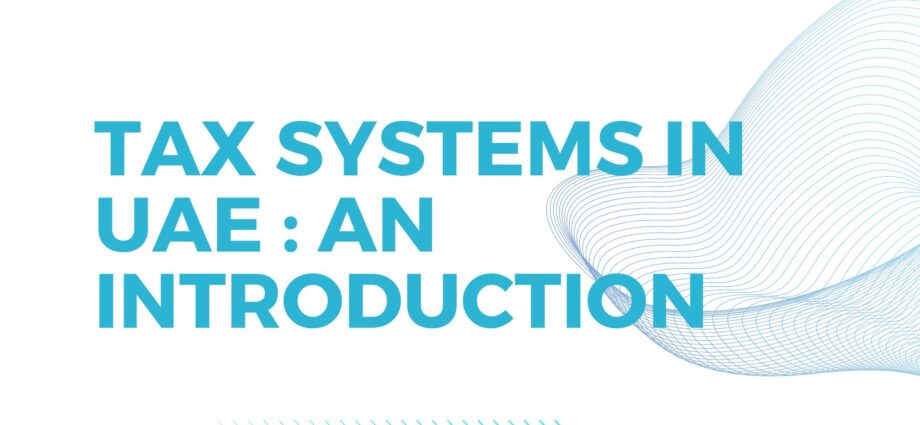The economy of the United Arab Emirates (UAE) is one of the world’s most dynamic and fastest-growing. But what exactly is it that makes it so appealing to companies? One major reason pointed out by the tax consultants in Dubai is its tax structure. The tax system in the United Arab Emirates (UAE) has been meticulously created to allow enterprises to thrive without being stifled by excessive taxation, which plays a crucial role in fostering economic growth. This article will examine the many UAE tax regimes and how they may influence your company.
Direct Taxes in UAE
Individuals and corporations alike may be subject to direct taxes, in which case the money goes straight from them to the government. The income tax is the primary direct tax in the United Arab Emirates. However, one of the reasons the United Arab Emirates (UAE) is so appealing to international investors is that it does not levy income tax on people. Salary, capital gains, and investment income are exempt from taxation for individuals in the United Arab Emirates.
Corporate Tax
Corporations and other commercial entities are subject to a kind of direct taxation known as “corporate tax,” which is calculated as a percentage of their taxable income or profit. The term “Corporate Income Tax” (CIT) and “Business Profits Tax” (BPT) is also frequently used interchangeably to refer to this type of tax. The United Arab Emirates has a corporate tax rate of 9%, applied to the company’s reported net profit. Taxes of 9% on corporate profits over 375,000 AED are due solely in the event that the company has a taxable net profit. Simply put, if your net profit is less than 3,75,000 AED, you will pay zero tax on it. There will be no personal income tax for individuals. Therefore, corporation tax will not apply to salaries, rents, dividends, and other personal income that is unconnected to a trade or business conducted in the UAE.
Indirect Taxes in UAE
Instead of taxing individuals directly, indirect taxes are levied on the things they buy. The Value Added Tax is the primary form of indirect taxation in the UAE (VAT).
Value Added Tax (VAT)
The United Arab Emirates (UAE) implemented a value-added tax (VAT) system in 2018. UAE now has one of the world’s lowest VAT rates, at 5%. The Federal Tax Authority (FTA) is in charge of the Value-Added-Tax (VAT) system, and every company with a yearly revenue of AED 375,000 or more is required by law to register for VAT.
Food, clothing, gadgets, and services like healthcare and education all incur value-added tax (VAT) in the United Arab Emirates. However, residential property, some financial services, and some healthcare and educational services are excluded from VAT.
Excise Tax
Tobacco products, energy drinks, and carbonated drinks are all subject to an excise tax in the United Arab Emirates in addition to the standard value-added tax. Cigarettes and energy drinks have a whopping 100% excise tax, whereas regular sodas only get hit with a 50% levy. Manufacturers and importers of these products must also register with the FTA in order to be subject to the excise duty at the time of import or manufacture.
Customs Duties
Imports into the UAE are subject to a second type of indirect tax, known as customs taxes. In the United Arab Emirates, customs duty rates change based on the nature of the imported goods and the country of origin. Customs duty rates are variable and can be anywhere from 0% to 5%, with an average of 4%.
Tax Treaties
More than 115 nations have signed double taxation accords with the UAE to prevent double taxation of the same income. These accords facilitate international trade and investment by reducing the risk of double taxation.
Tax Residency in UAE
Any person who resides in the United Arab Emirates for 183 days or more during a calendar year is considered a tax resident of the UAE. In the United Arab Emirates, only tax residents are required to pay taxes on their income earned within the country, while those who are not residents are exempt. Since the United Arab Emirates does not impose a tax on private income, this regulation exclusively affects private citizens.
Taxes in Free trade zones
Individual free-trade zones inside the United Arab Emirates (UAE) have their own unique systems of import taxes, customs regulations, and quotas. In fact, there are over 40 distinct areas in the United Arab Emirates. Businesses operating within these zones are exempt from paying corporation taxes for a period of up to 50 years, and they are also exempt from import and export duties at a rate of one hundred percent.
Conclusion
The UAE has designed its tax structure in order to encourage economic growth and attract foreign investors and corporations. The United Arab Emirates (UAE) has a favorable tax climate due to its lack of personal income tax and its low corporate tax rate of 9%. In 2018, the government will receive more money thanks to the value-added tax (VAT) and the excise tax on some commodities. The United Arab Emirates has also signed double taxation treaties with more than 115 countries, making international trade and investment less vulnerable to double taxes. As a whole, the United Arab Emirates (UAE) tax system provides a favorable business climate, making the country a desirable place for businesses to set up shop. If you need any assistance with your tax, it is recommended that you reach out to the reputed TAX consultants in Dubai. Auditfirms.ae includes information of many accounting firms across the country. It makes our website the perfect tool for finding tax consultants in Dubai, as you can search through the listings to find firms that offer tax consulting services. We ensure that all our listed tax consultants are qualified and experienced professionals who will provide you with the best possible service.

